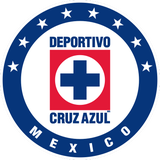
Cuban soccer may finally be able to put down roots as diplomatic relations thaw

In the wake of President Barack Obama's historic visit to Cuba, the spotlight is shining on the island nation. As a country known for producing baseball stars, which we were reminded of with Tuesday's star-studded exhibition game between the Tampa Bay Rays and Cuba's national team, their soccer team is also a focus of national pride. But it is a team not without its disappointments.
It's common, when the Cuban team travels to the United States and Canada, to hear of players disappearing from hotels or walking away from planned outings. They leave their lives and sports careers to defect to the United States, a decision made easier by the 'Wet foot, Dry foot' policies of the U.S. government.
Last summer during the Gold Cup, Cuba had four players defect during the course of the tournament. The team had only a squad of 19 to choose from when they faced the United States at the end of the group stage. The Gold Cup results were not flattering either: Cuba lost to Mexico 6-0, lost 2-0 to Trinidad & Tobago and 6-0 to the United States.
As evidenced by the lopsided results, Cuba has a ways to go in establishing themselves as competitive in CONCACAF. FIFA currently ranks Cuba at 135th in the world, a spot shared with Philippines and Sudan. Almost all of Cuba's national team roster are professionals playing at home in the Cuban league. A situation exacerbated by national policy that was finally lifted in 2013 -- it had been in place since 1961 -- which banned professional sports contracts for Cubans off the island.
At the Gold Cup, Keiler Garcia made headlines when he defected from the team prior to their opening match against Mexico in Chicago. Then, just days later, appearing on Mexican television as a commentator for the Cuba/Mexico match. After the four defections from the senior team during the summer, Cuba lost six more U-23 players during 2015 CONCACAF Men's Olympic Qualifying in October.
Since 1999, at least 30 Cuban soccer players have defected to the United States during various trips north. Add to that the fact that the Cuban federation refuses to field players who have defected and you're left with a depleted and inexperienced national squad.
Only recently did Cuba grant permission for two of their soccer players to pursue careers abroad, something they are also allowing for their baseball talent. Maykel Reyes made his debut for Cruz Azul Premier, in Mexico's third division, at the beginning of March. Cruz Azul also signed Abel Martinez, a midfielder who made his Cuba debut in January 2016. The signings of both 22-year-olds may mark the beginning of a new approach to international sport, and a way for Cuba to keep hold of their native talent.
#Nota @Cruz_Azul_FC firmó a los cubanos Maykel Reyes y Abel Martínez para jugar en #2aDiv https://t.co/H70qUzWTaO pic.twitter.com/YwazbXvmAM
— Segunda División (@segundadivfmf) January 14, 2016
In most cases, the athletes who choose to walk away from their lives and teams in Cuba are rearely heard from after. Many aspire to professional sports careers in the United States or Mexico, and some manage to earn contracts. But the success stories are few.
One of those successes is Seattle Sounders' Osvaldo Alonso. He began his career with Cuban pro team Pinar del Rio before defecting to the United States in 2007 during the Gold Cup. He made 16 appearances for Cuba before walking away from his teammates at a Wal-Mart in Houston, Texas. He played a season with USL team Charleston Battery before locking down a contract with Seattle and becoming a crucial member and starter for the Sounders.
The more recent defectors have yet to rise to the level of name recognition but they're gaining experience and exposure. As lower division leagues in the United States, like USL and NASL, garner more attention, better talent and better competition - the future for Cuban players playing in those environment only improves.
Amateur club Fortuna SC, based in Miami, has become an unofficial landing place for many recent arrivals. Senior team players Ariel Martinez and Dario Suarez, and under-23 internationals Brian Rosales, Frank Lopez Garcia and Yendry Torres now call that team home. Jorge Luis Corrales also played with Fortuna for a season before signing in 2016 for the newly formed NASL team Miami FC.
USL's Charleston Battery has become another common landing place. Goalkeeper Odisnel Cooper, who defected in 2012 has been playing there since 2013. As has midfielder Maikel Chang and forward Heviel Cordoves, both defectors from Cuba's 2012 trip to Canada before World Cup qualifying.
Cuba's national team has slowly testing the waters of international exposure and experience, inviting the NY Cosmos to Havana for a friendly matchup in June. The Cosmos defeated the national team 4-1 but the scoreline was less important than the fact that it was the first visit to the island by a U.S. professional team since the two countries began addressing diplomatic issues.
In November, Santos Laguna followed the Cosmos, meeting up with the national team in Havana. Santos became the first Mexican team since the 1940's to play in Cuba. And even better for Cuba, they notched a 1-0 win over the Liga MX club.
As diplomatic and business relations between the United States and Cuba continue to thaw, the future of professional athletes from and for Cuba looks brighter. The most promising players may finally get more chances to play on bigger stages, surrounded by more experience. But until then, Cuba's national team will struggle to build a solid foundation.
